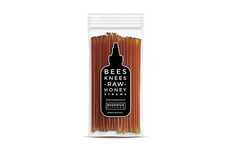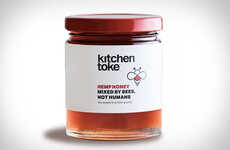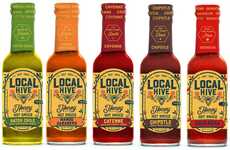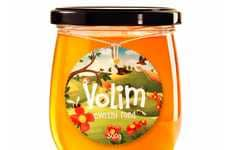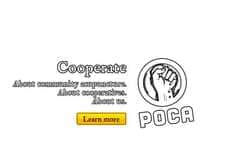
New York City's Gotham City Honey Co-Op Can't Sell Honey
Katie Cordrey — January 11, 2010 — Eco
References: csmonitor & gothamcitybees
The Gotham City Honey Co-op was established to allow members to participate in buying beekeeping equipment and to provide a facility for extraction, bottling, and sales of honey. The co-op also hopes to sell its product to specialty stores. Those plans are on hold for the moment: Because bees are considered “dangerous animals,” beekeeping is illegal in New York City.
Urban beekeepers are taking classes and establishing urban hives despite the New York City ban. While the honey isn’t yet available online, Gotham City honeybees are pollinating the ornamental landscapes and urban gardens and there is little doubt that their keepers are getting a little illegal honey love in the bargain.
Urban beekeepers are taking classes and establishing urban hives despite the New York City ban. While the honey isn’t yet available online, Gotham City honeybees are pollinating the ornamental landscapes and urban gardens and there is little doubt that their keepers are getting a little illegal honey love in the bargain.
Trend Themes
1. Urban Beekeeping - This trend presents opportunities for equipment providers and service providers.
2. Specialty Honey Products - This trend presents opportunities for honey producers and retailers.
3. Changing Regulations - This trend presents opportunities for advocacy groups and legal services.
Industry Implications
1. Agriculture - The beekeeping industry can capitalize on the trend towards urban beekeeping and the demand for specialty honey products.
2. Retail - Specialty stores can benefit from the increased demand for specialty honey products.
3. Legal Services - Law firms can benefit from the changing regulations regarding beekeeping in urban areas.
2.3
Score
Popularity
Activity
Freshness



